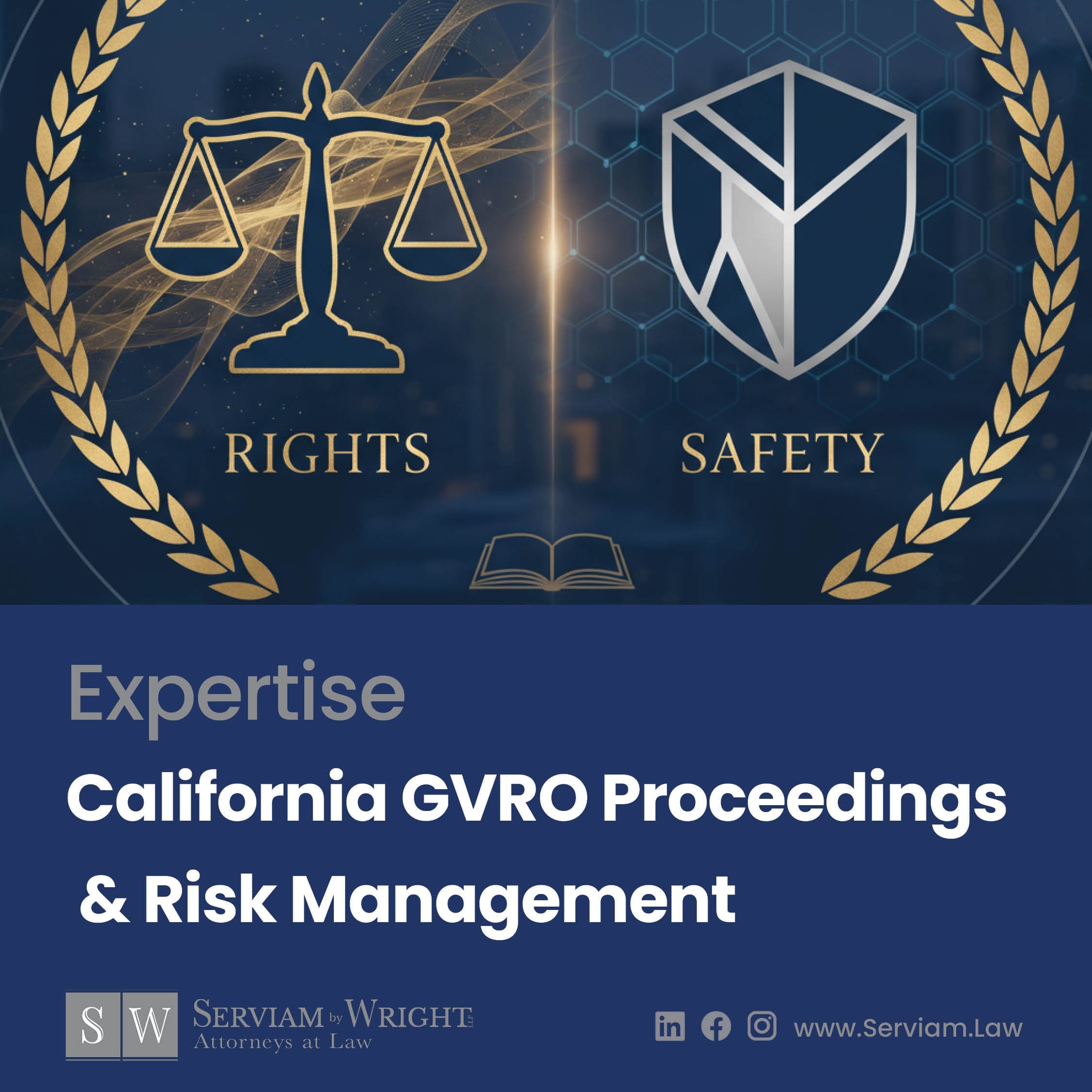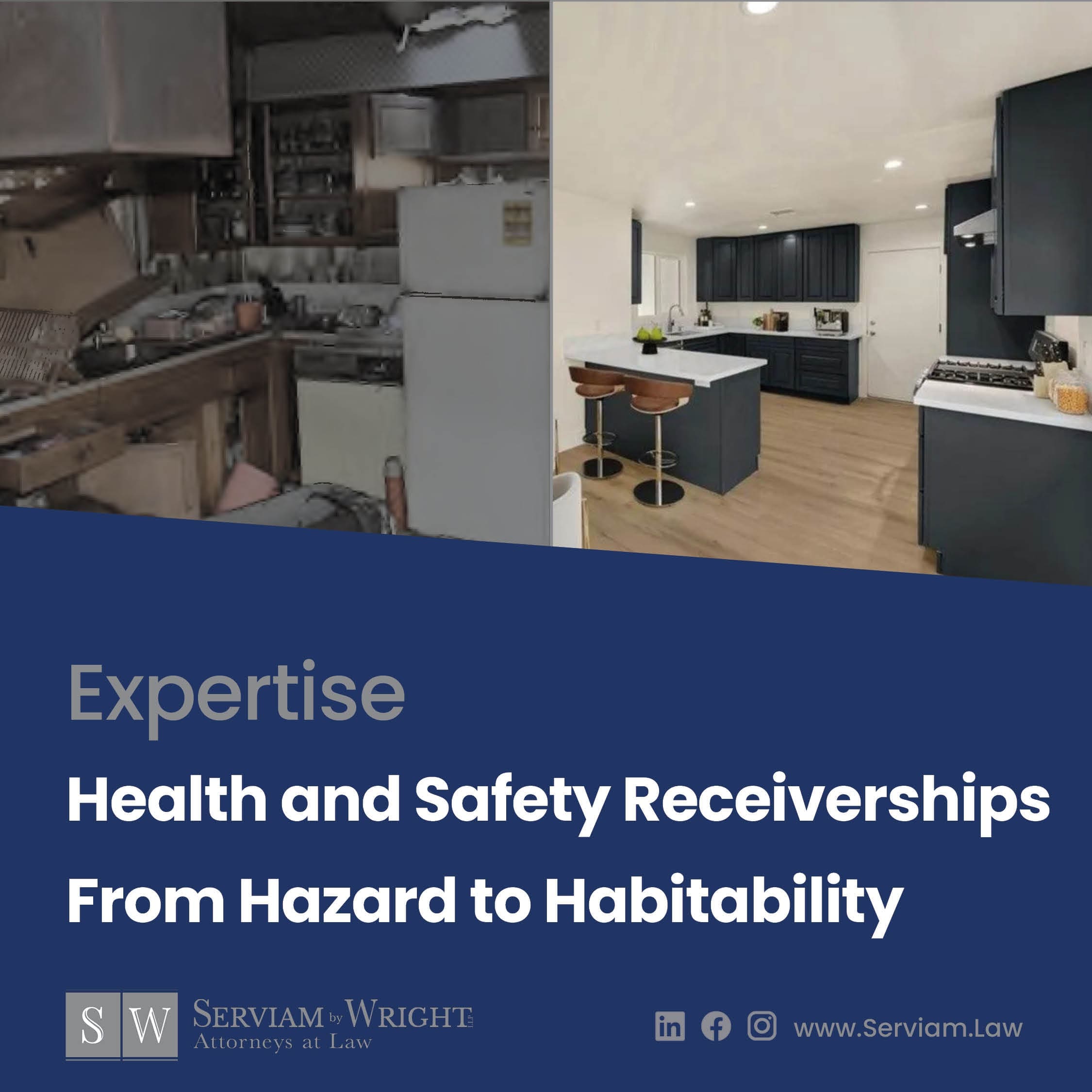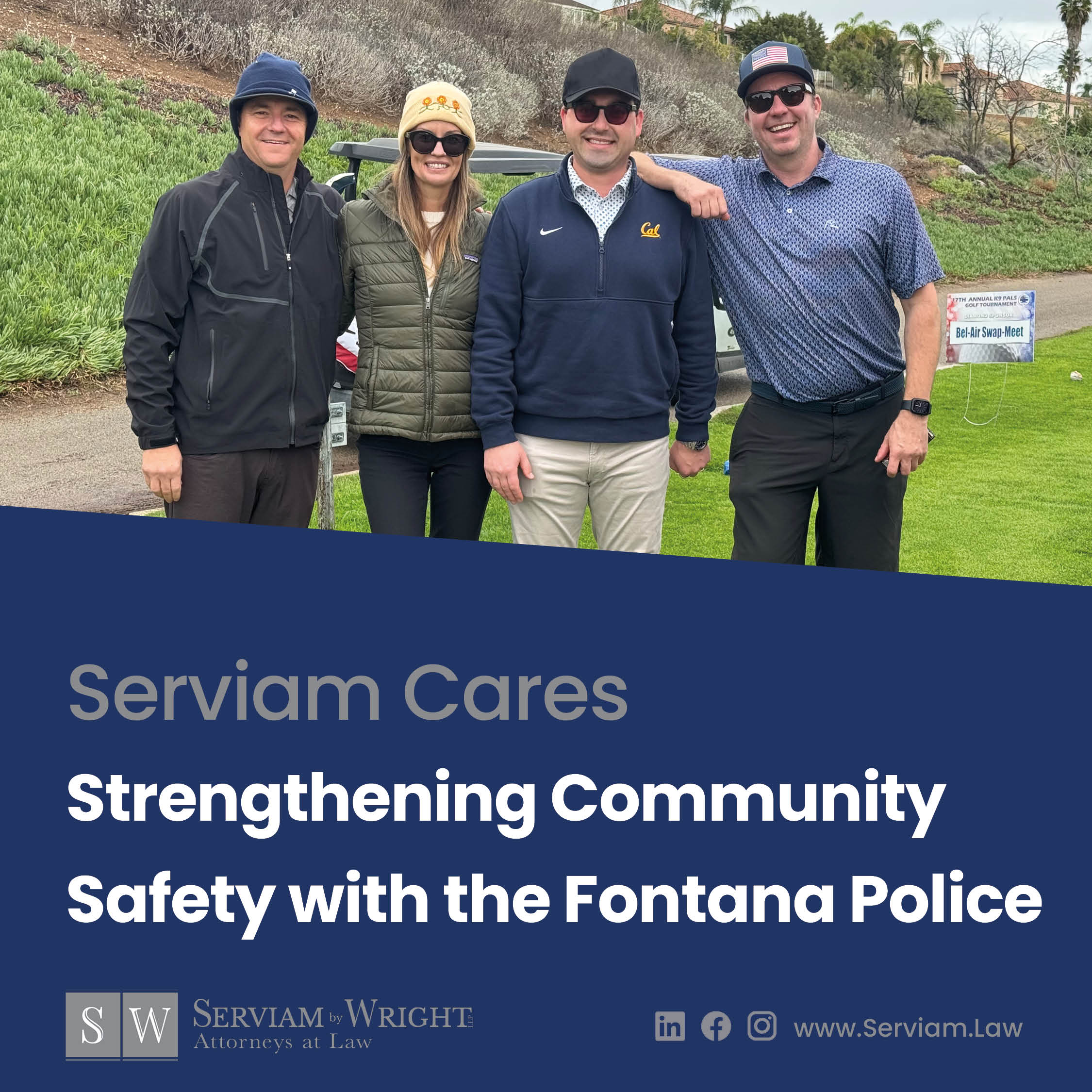Q: As a founding partner at Serviam by Wright LLP, what are your practice areas?
City Prosecutor, City Attorney, Nuisance Abatement, Code Enforcement, Receiverships, Police Services, Civil Rights Litigation Defense, Land-Use Regulation, Cannabis Regulation and Enforcement, and General Municipal Litigation.
Q: Could you talk a bit about your experience in the U.S. Army?
I was a Captain and Ranger in the United States Army. I am a combat veteran and it was my honor to help liberate Iraq as part of Operation Iraqi Freedom. I also served in various Corps level contingency planning operations in southeast Asia, including Japan and Korea. I truly appreciated the opportunity to serve. My highest respect is given to the military leaders, and their families, that have made a lifetime career out of military service. Nothing that we have built in this country would be possible without their lifelong service and sacrifice.
Q: How has your military background and work experience prepared you for success?
My Army Ranger experience taught me great self-discipline and dedication to public service. I believe deeply in the ideals of freedom and democracy, and civic duty. Because of those principles, I have chosen a career path that has led me to help enforce the laws and regulations that keep our society and our communities safe, strong, and prosperous. I take great pride and pleasure in helping revitalize neighborhoods cripplingly impacted with crime and blight caused by hazardous nuisance properties. Our work saves lives that would otherwise have been taken by the dangerous conditions and criminal elements present around those dangerous properties.
Q: How does your experience add value for your clients?
Law enforcement is a noble, but difficult, career. It takes people with deep convictions that are willing to make personal sacrifices to protect our communities, and they do so despite limited appreciation and often significant public animus. I understand their sacrifice and commitment, and I am honored to help assist them in successfully executing their duties and protecting our communities. Every day I get the opportunity to work with the finest people in the State and to help them effectively protect our communities. The cases and dangerous properties that are referred to us often have a significant history, involving grave hazards, crime, drugs, gangs, prostitution, and human trafficking. I appreciate going home knowing I worked with our clients to help make the world a better place every day.
Q: How do your frequent presentations and publications fit within the larger picture of your work?
When Matt and I founded the firm, we realized that there are a significant number of tools and resources to fight dangerous conditions and blight that local jurisdictions are not fully utilizing. Often it is because of lack of resources or awareness. As part of our effort to give back, we invest hundreds of hours of pro bono time each year helping teach code enforcement officials and public agencies about the laws, tools, and resources available to them to protect and improve their communities. Our presentations, classes, sponsorships, and publications have afforded me the luxury of meeting public officials and law enforcement personnel all over the State and the country. Doing so lets me get to know the various perspectives and issues being faced by California’s diverse communities, and let’s me share knowledge to help them address their dangerous nuisance problems.
Q: What’s a recent project of which you’re particularly proud?
Every jurisdiction deals with limited resources, yet significant public duties and obligations. Public agencies need to utilize public funds as effectively and efficiently as possible to maximize the public benefit. Recently, we have been working with a number of jurisdictions to improve their nuisance abatement processes to be more fair and transparent to the public, minimize administrative costs, and maximize efficiency. The result is a win for the community, the public agency, law enforcement personnel, and even the violators. Of course, our work rehabilitating slum properties, drug houses, and gang quarters is always tremendously rewarding. Those projects have a significant and immediate improvement on the community.
Q: What competitive advantages can Serviam by Wright LLP offer to local governments and the businesses with which they partner?
Serviam is the leading expert in the state in nuisance abatement, code enforcement, and receiverships. We are able to produce effective, efficient, and expeditious results. Every case is unique and presents unique challenges, but due to our depth of experience, we are capable of handling virtually any unique issues that may arise in virtually any case. Our attorneys pride themselves on being subject matter experts that thoroughly advise local government about what to expect in these cases in advance in order to minimize surprises and to ensure we are achieving the agency’s objectives. Serviam produces results more consistently and cost-effectively than other firms, and we pride ourselves on passing those benefits on to our client communities.
Q: If you could solve any code enforcement-related problem in the world, what would it be?
Homelessness. It is a growing epidemic, and there is no known solution. Every jurisdiction is approaching it in their own unique way. Some jurisdictions have the resources to invest significant funds in housing, medical services, mental health services, and substance abuse services. Other jurisdictions are trying to identify specific resources and link specific individuals with the necessary services that may help them get re-established. Most of the homeless population just needs the opportunity to re-establish themselves, obtain needed job training and education, and access to a platform from which to re-launch. Other members of the homeless community have significant substance abuse and mental health issues that we do not necessarily have the knowledge yet to cure. Regardless, there are constantly insufficient resources to address the growing scope of the epidemic. All that local governments can currently do is invest as much as available to help as many as possible. One of my most rewarding roles is assisting local governments with identifying tools to address the problem best in their communities based on their resources and priorities.
Q: What challenges and new developments do you predict in your field?
Cannabis regulation will continue to be an evolving area of challenges and new developments in California. Transitioning a historically prosperous criminal drug market into a highly regulated and taxed industry presents significant long-term challenges. The State is still experiencing drastically high volumes of black-market cannabis activity, which threatens and strangles the nascent compliant industry. Legitimate investors are being squeezed out by criminal cartels that operate with significantly fewer overhead costs, less regulation, less taxes, and higher profit margins. Cities and counties will need to step up aggressive black-market enforcement efforts if they hope for the compliant cannabis industry to survive. I am working with numerous jurisdictions on black-market cannabis enforcement, and I look forward to continuing to do so as this area of law evolves over the coming years.





